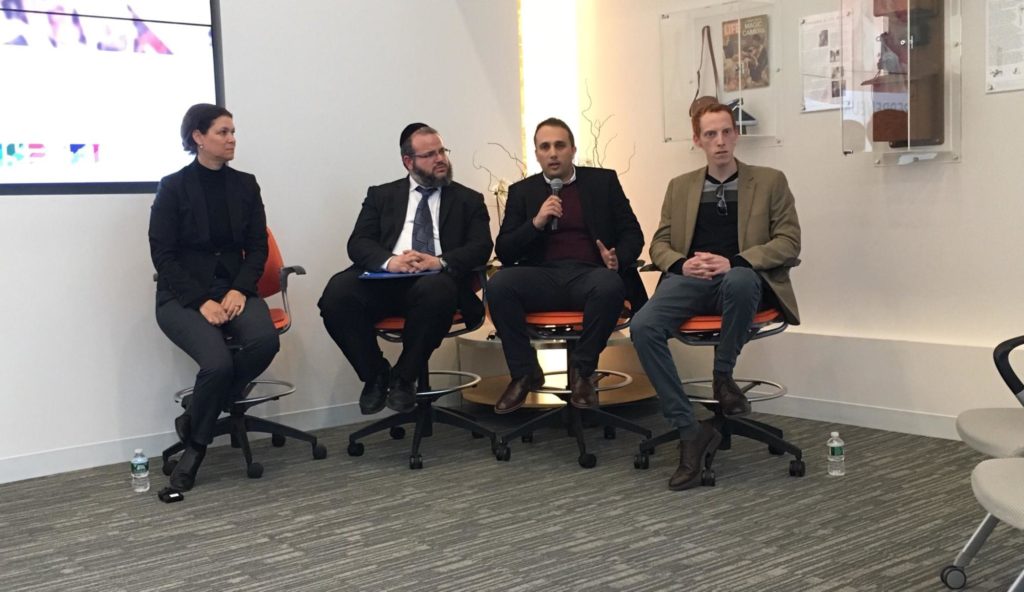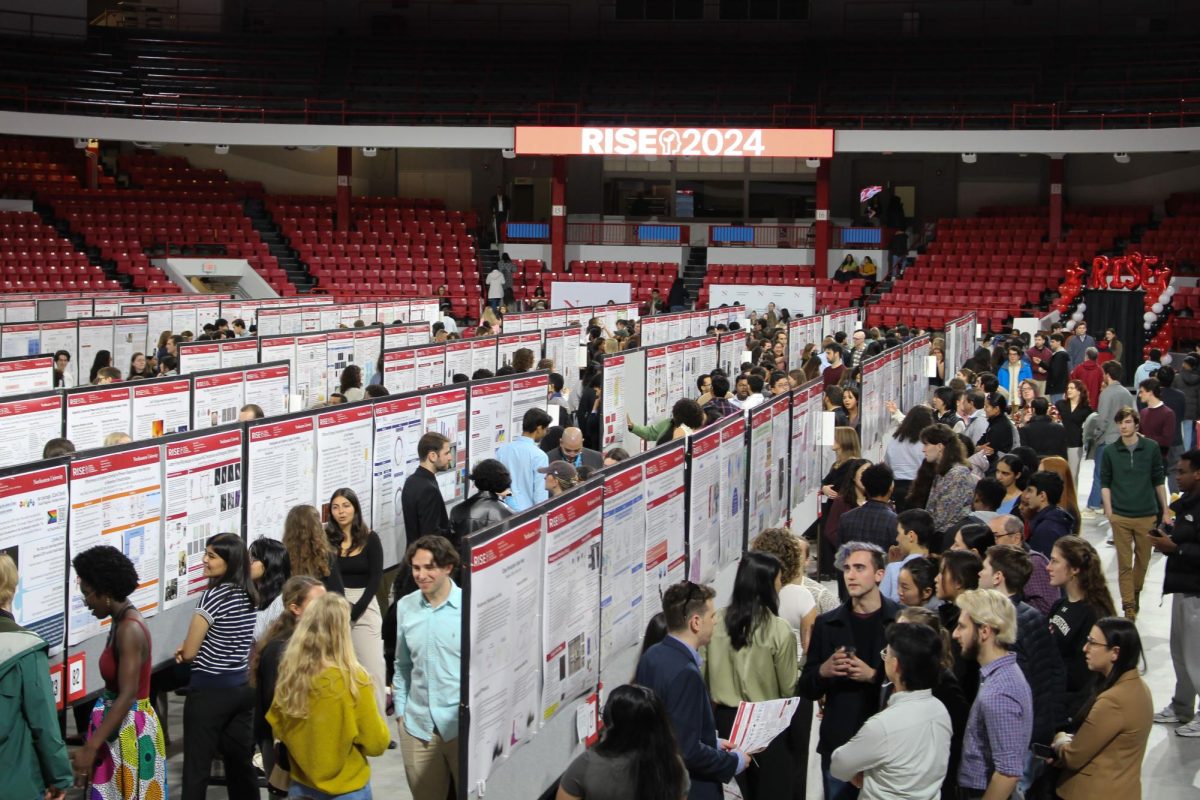By Guy Ovadia, news correspondent
A Northeastern Israeli business organization invited entrepreneurs Tomer Shor and Dr. Shady Hassan to campus March 18 to discuss creating and running their own tech companies in Israel.
Israel is home to a large tech industry, hosting small startups as well as large international corporations like Intel and Google. The university organization, Northeastern TAMID, aims to prepare students for the business world by educating them about entrepreneurship and consulting with Israeli startups.
“We focus on the Israeli startup scene just because there are so many startups coming out of Israel that have been so successful,” said Avi Natan, president of Northeastern TAMID and a second-year chemical engineering major. “We are trying to learn what makes them able to succeed in such a hard area to succeed in.”
Shor and Hassan launched their companies, TuneFork and Healthymize, through PresenTense, a nonprofit venture accelerator that provides networking and funding for programs by and for marginalized communities in Israel including Arabs, ultra-Orthodox women and people with disabilities. Both Shor and Hassan have personal connections to marginalized communities in Israel, as Shor’s father had a disability and Hassan is a member of the Druze community, a minority ethnoreligious group.
“The population [in Israel] is so diverse,” PresenTense CEO Rachel Shaul said at the event. “We would like to find a way to improve everyone in the entrepreneurship process, not just part of the [population], because we believe we can strengthen the society by promoting entrepreneurship for social change.”
Shor’s company, TuneFork, is a mobile app that creates a precise audio filter for smartphone users with hearing loss. Because of hearing loss, Shor’s father had difficulty using his smartphone to listen to music or make phone calls. While searching for a solution, Shor and his colleagues discovered everyone has a particular way of hearing things.
“We found out that each of us has a unique ‘ear print.’ Just like a fingerprint, we all hear differently,” Shor said. “That’s why we developed TuneFork. This is an audio personalization technology. We know how to find the specific needs of the user — the ‘ear print’ — and adjust the audio to the user’s needs.”
Shor said TuneFork is vital to individuals with hearing loss, especially elderly people who often can’t pick up certain sound frequencies. TuneFork is more affordable and accessible than hearing aids, Shor said, because it optimizes smartphone audio based on a person’s hearing capabilities using no external devices.
The reason TuneFork was successful, Shor said, was because of the opportunities for assistive technology in Israel. A PresenTense accelerator helped Shor and his team connect with Gal Hearing Systems, an Israeli hearing aid company which shared vital medical and technical knowledge with them.
“Investors don’t always see the connection between helping the society and helping people with disabilities and the business potential we have with this technology,” Shor said.
Both Dr. Hassan and Shor said Israel’s heavy emphasis on the startup model have greatly benefited their organizations. In contrast with the highly competitive medical field in the United States, Dr. Hassan said, Israel’s business infrastructure is more supportive of startup companies with ideas for medical products.
“We want to give [students] business experience in connection with the Israeli economy because, like they were describing in the event, it is a startup nation,” said Shannon Crowe, Northeastern TAMID’s vice president of operations and a fourth-year math and finance double major.
Hassan’s company Healthymize worked with PresenTense’s Haifa Scalerator, which focuses on assisting entrepreneurs from the Arab community.
For many years, Hassan worked as resident physician in a hospital in Haifa. There, he noticed many diseases such as asthma, influenza, pneumonia and even heart failure affect people’s voices.
So Hassan had the idea to develop an application which monitors a user’s phone calls and detects the presence of voice-affecting diseases. Hassan believes his product will get people in the physician’s office sooner so users can avoid worsening symptoms.
“Something that is so amazing to me is to see people that are not just passing along the papers and getting the work done,” Natan said, “but they really care about the idea and they want to see it grow and be successful.”
Shor said anyone with a passion to solve, do or create something can take the risk and give up everything to pursue their passion. For Shor, that passion was for helping his father use audio on his smartphone.
Accelerators like PresenTense provide the tools, funds and networks to create opportunities for people who otherwise wouldn’t have been entrepreneurs, Shaul said. Shaul’s passion was not only to provide opportunity, but to inspire people from underprivileged groups to overcome adversity.
“[Israel is] a very divided society, and in the last few years it has been even worse,” Shaul said. “Entrepreneurship is not a purpose. Entrepreneurship is a tool for social change.”












